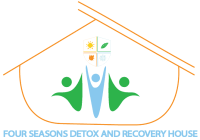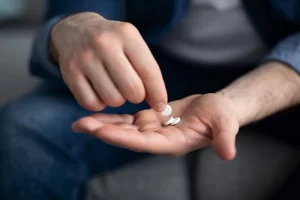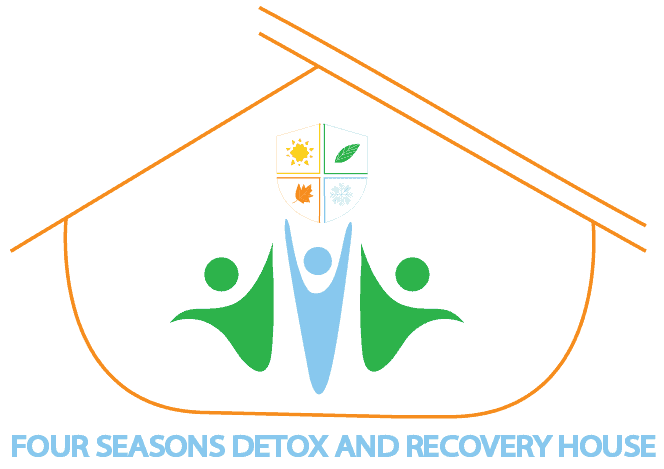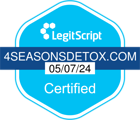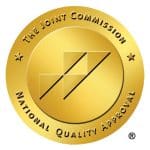In the process of overcoming addiction, people often feel really bad about things they did when they were using drugs or alcohol. This bad feeling is called guilt and shame in recovery. It’s like when you know you did something wrong and feel sad about it
But, it’s important to remember that recovery is about making your life better. It’s like getting a fresh start. You don’t want those bad feelings like guilt and shame to hold you back.
So, it’s like cleaning up your room and getting rid of old stuff you don’t need anymore. It makes your room, or in this case, your life, better and happier. Don’t let those bad feelings from the past keep you down. Let them go, and you can focus on becoming a better you.
What Are Guilt and Shame?
Guilt and shame, although closely related, are distinct emotional responses:
- Guilt is often the result of recognizing that you’ve done something wrong. It’s tied to specific actions or behaviors that you feel responsible for, making you think, “I did something bad.”
- Shame, on the other hand, goes beyond actions; it’s about feeling fundamentally flawed as a person. Shame often leads to the belief that, “I am bad.”
The Role of Guilt and Shame in Addiction Recovery
In the context of addiction recovery, these emotions frequently take center stage. Individuals battling addiction may experience guilt for the harm they’ve caused to themselves and others. They may carry the weight of their actions, and this can be a driving force behind their substance abuse.
Shame, on the other hand, can be even more insidious. It can lead individuals to believe that they are fundamentally broken, unworthy of recovery, or incapable of change. This can create a cycle of self-destructive behaviors, as they use substances to numb the shame, only to feel more shame for doing so.
The Impact of Guilt and Shame in Recovery
Understanding the emotional burden of guilt and shame is only half the battle in addiction recovery. It’s equally crucial to grasp how these emotions can shape the path to sobriety.
Barriers to Progress
Guilt and shame, when left unaddressed, can act as formidable barriers to recovery. Here’s how they manifest:
- Relapse Triggers: Guilt and shame often serve as potent triggers for relapse. When individuals feel overwhelmed by these emotions, they may turn to substances to numb the pain and self-loathing. It becomes a vicious cycle where they use to escape the very emotions that the addiction itself exacerbates.
- Low Self-Esteem: Shame can erode one’s self-esteem, making them feel undeserving of a better life. This can lead to self-sabotage, where individuals make choices that undermine their recovery efforts.
- Isolation: These emotions can drive individuals to isolate themselves, believing they are too flawed to connect with others. This isolation can lead to loneliness and a lack of support, making recovery even more challenging.
Physical and Psychological Effects
Guilt and shame in recovery aren’t just emotional burdens; they can take a toll on one’s physical and psychological well-being.
- Stress and Anxiety: The constant presence of guilt and shame can lead to high levels of stress and anxiety, which are known to trigger cravings and hinder recovery.
- Depression: Shame, in particular, is closely linked to depression. A persistently negative self-image can lead to feelings of hopelessness and despair.
- Self-Destructive Behaviors: As mentioned earlier, individuals may engage in self-destructive behaviors as a way to cope with these emotions, further jeopardizing their recovery journey.
Strategies for Managing Guilt and Shame in Recovery
Now that we’ve explored the importance of dealing with guilt and shame in addiction recovery, let’s dive into actionable strategies to effectively manage and overcome these emotions.
1. Be Kind to Yourself
Recognize that making mistakes is a part of being human. Embrace a mindset of growth and healing rather than self-punishment. Forgiving yourself for past actions and choices is essential for moving forward in recovery.
2. Get Professional Help
Seek support from therapists and counselors who specialize in helping individuals manage complex emotions like guilt and shame. They offer personalized strategies and a safe space to explore and address these feelings effectively.
3. Build a Support System
Surround yourself with understanding and non-judgmental people. Consider joining support groups and relying on the encouragement and empathy of friends and family. A strong support system can provide strength and motivation during your recovery journey.
4. Change Your Negative Thoughts
Embrace cognitive-behavioral techniques to identify and challenge the negative thought patterns that fuel guilt and shame. By replacing these thoughts with positive and rational ones, you can reshape your mindset, boosting your self-esteem and self-worth.
5. Stay Present with Mindfulness
Cultivate mindfulness and meditation practices to help you stay in the present moment. These techniques reduce rumination on past mistakes and enhance your emotional regulation, promoting a calmer and more positive outlook on life.
6. Practice Gratitude
Incorporate gratitude into your daily routine by maintaining a gratitude journal. By acknowledging and appreciating the positive aspects of your life, you can shift your focus away from negative emotions, fostering a more optimistic perspective.
7. Boost Self-Esteem
Regularly repeat positive affirmations to reshape your self-image and boost your self-confidence. Counteract feelings of unworthiness by reminding yourself of your inherent value and potential for growth.
8. Set Achievable Goals
Establish small and manageable goals for yourself. Achieving these objectives instills a sense of accomplishment, reinforcing your belief in your ability to change and grow in your recovery journey.
9. Take Care of Your Body
Prioritize your physical health by engaging in regular exercise, maintaining a balanced diet, and ensuring you get adequate sleep. A healthy body contributes to a healthier mindset, making it easier to manage emotions and maintain well-being.
10. Practice Self-Care
Prioritize self-care activities that bring you joy and relaxation. Whether it’s reading, taking relaxing baths, or spending time in nature, these activities help reduce stress and boost emotional well-being, ultimately supporting your recovery.
Cultivating a Positive Mindset
As we delve deeper into strategies for dealing with guilt and shame, it’s crucial to recognize the pivotal role of a positive mindset in addiction recovery. Let’s explore why maintaining an optimistic outlook is a key component of overcoming guilt and shame.
The Importance of a Positive Mindset
A positive mindset can be a crucial force in recovery. Here’s why it matters:
- Resilience: Positivity fosters resilience, helping individuals bounce back from setbacks and challenges. It’s an essential trait for a successful recovery journey.
- Motivation: A positive mindset can fuel motivation. When individuals believe in their ability to change and grow, they’re more likely to stay committed to recovery.
- Emotional Well-Being: A positive outlook can improve emotional well-being. It counteracts the negative impact of guilt and shame, promoting mental health.
Practical Steps to Cultivate Positivity
- Gratitude Journaling: Encourage individuals to keep a gratitude journal. Each day, write down things they’re grateful for. This simple practice can shift focus from guilt and shame to positive aspects of life.
- Positive Affirmations: Regularly repeating positive affirmations can help reshape one’s self-image. For example, “I am worthy of love and happiness” can counteract feelings of unworthiness.
- Set Achievable Goals: Establishing and achieving small goals can instill a sense of accomplishment. It reinforces the belief that change is possible.
Seeking Professional Help
In the complex journey of addiction recovery, the guidance of trained professionals is an invaluable resource, especially when it comes to managing guilt and shame. Let’s explore why finding the right rehab center and seeking professional help is a crucial step and how it can lead to a brighter, addiction-free future.
The Role of Mental Health Professionals
Mental health professionals, such as therapists, counselors, and psychiatrists, specialize in addressing the emotional challenges that accompany addiction recovery:
- Expertise: They possess the knowledge and skills to navigate the complexities of guilt and shame effectively.
- Safe Space: Therapy sessions offer a non-judgmental and confidential space for individuals to explore their emotions.
- Customized Solutions: Professionals can tailor treatment plans to address an individual’s unique needs and circumstances.
The Benefits of Therapy
Therapy can be a transformative experience for those grappling with guilt and shame:
- Cognitive-behavioral therapy (CBT) is highly effective in challenging negative thought patterns associated with these emotions.
- Dialectical-behavior therapy (DBT) can help individuals regulate intense emotions, a common challenge in recovery.
- Trauma-focused therapy can be crucial for those whose guilt and shame stem from traumatic experiences.
Applying for Specialized Treatment
To illustrate the importance of seeking professional help and to offer a practical solution, consider our specialized treatment program at Four Seasons Detox. We provide comprehensive alcohol and drug detox and rehabilitation services to individuals in need of support.
Our program offers:
- Medical Supervision: Our detox process is medically supervised to ensure safety and comfort during withdrawal.
- Therapeutic Support: Our expert team of therapists and counselors specializes in addiction recovery, including addressing guilt and shame.
- Individualized Care: We understand that every journey is unique. Our treatment plans are tailored to each individual’s specific needs.
By seeking professional help, such as our specialized treatment at Four Seasons Detox, individuals can access the support and guidance they need to effectively manage guilt and shame, paving the way for a successful recovery.
